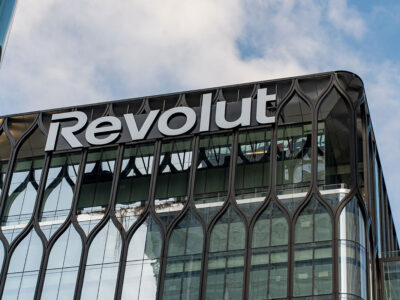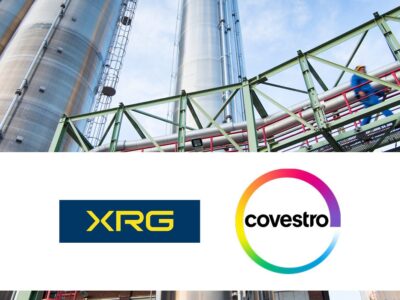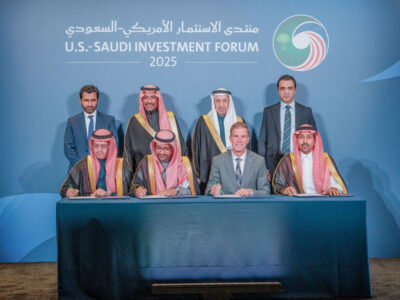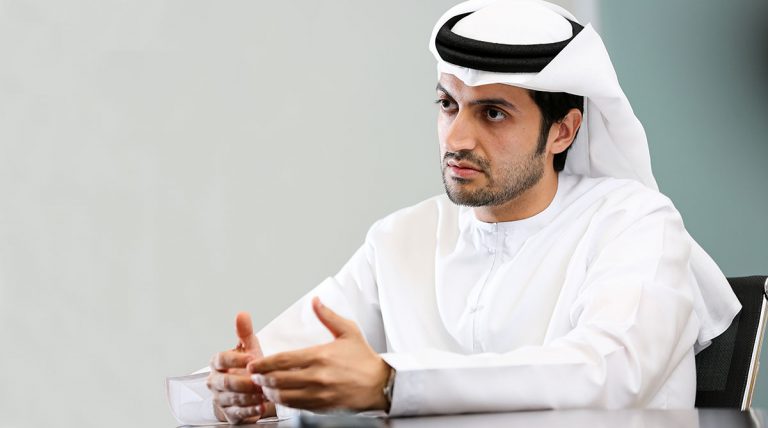“You see that sand over there?”
Jassim Alseddiqi points to an empty plot of land from the window of his 35th-floor boardroom overlooking the waters from Abu Dhabi Global Market on Al Maryah Island. “If you tell me it’s for sale at one dirham per tonne then I’ll buy it,” he tells Arabian Business during a lively interview at the commercial epicentre of the UAE capital.
The CEO of the Abu Dhabi Financial Group (ADFG) is presumably joking, but only to make a very real point about how he’s gone about establishing and leading ADFG to become one of the largest private institutional investment houses in the Gulf region in just eight years.
ADFG has grown its assets under management to $20bn, with investments across platforms including debt, private equity, public markets, real estate and technology. And often there is a focus on special situations. Distressed debt? Bring it on. Event-driven situations requiring capital? Out comes the cheque book. “At the right price, we buy.” he insists.
Alseddiqi’s mastery of the turnaround has become ADFG’s signature of success across the region. Most notably, the group’s strategic investments in Shuaa Capital and GFH Financial Group have yielded strong results. Post-turnaround, Shuaa has re-emerged as a main player in the region’s financial sector in 2017, recording its most profitable year since 2007 achieving a net profit of AED74m ($20.15m). In fact, this year, Shuaa proposed a dividend of AED 0.02/share, its first dividend in 10 years.
We wait and see how markets or companies go up and down and then catch things as they fall
Meanwhile, Bahrain-based investment bank GFH had lost 92 percent of its market value between 2008 and 2015. But since ADFG executed its turnaround strategy, the stock has gained 208 percent on a total returns basis.
“It doesn’t matter what it is,” Alseddiqi continues. “Being able to acquire something – anything actually – at the right price could be a good deal. So that’s why you wait and see how markets or companies go up and down and then you catch things as they fall.”
Joking this time he adds: “We call them fallen angels.”
The mother of invention
ADFG’s trademark turnaround strategy wasn’t actually part of the original plan, Alseddiqi admits. However, the CEO is no stranger to these fallen angels because ADFG is a brand that was born in adversity.
In November 2010, Alseddiqi was busy working with two colleagues to put together plans for a growth fund in the Middle East. “We prepared all the documents and in January 2011 we officially started the firm. And then the Arab Spring started,” he recalls. “So there went our growth thesis!”
As a firm we were born during a crisis and we took that as a strength. Necessity is the mother of invention
Instead of rueing their bad luck, they pivoted to work with distressed opportunities. “Because we had to do something” he says. “We’d quit our jobs and we had to start this. As a firm we were born during a crisis and we took that as a strength. You couldn’t target growth at that time, things were crashing, so we started the other way around with distressed assets and so forth. Necessity is the mother of invention.”
While a “very difficult speciality”, Alseddiqi says ADFG has weathered the past nine years irrespective of booms and busts simply because of the way the firm started. “Those initial circumstances made it relatively easy for us to succeed in the subsequently difficult times that we have witnessed,” he says.
For this success, he credits his team. Earlier this month, Alseddiqi even dedicated his Arabian Business Achievement award to his employees. “As I look back at my journey of setting up ADFG in 2011 to making it become what it is today, I realise this wouldn’t have been possible if it wasn’t for the exceptional team of people who have been working with me every step along the way,” he told the audience.
Today, meanwhile, he adds that ADFG’s strong network, holistic platform and track record has made it easy to devise great opportunities that have become part and parcel of the firm’s operations.
“Origination sometimes is more important than execution and exit,” he adds. “It used to be more difficult in the past, especially when we started. But since everything was in shambles when we started, origination was really anything you touch.”
From shambles to success
But what really goes wrong at these companies for them to land in trouble in the first place? The master of turnarounds chalks it all down to just the one thing: management.
Turning around a company is really about two things: stopping the bleeding and then growing
“Every company that we come into needs a change of management, be it the board or senior management level,” he says. “They’re not necessarily doing anything wrong. But perhaps they are not passionate enough or are too laid back. Maybe they don’t know what they’re doing or have a lack of direction.”
Asked if market conditions are also to blame, Alseddiqi’s response is an emphatic ‘no’. Companies across the UAE and the wider Gulf region have felt the squeeze in the wake of challenging macroeconomic conditions in a climate of low crude prices, weak economic growth and tight liquidity from banks. The government has, in response, been making several efforts to reboot growth and relieve businesses with initiatives such as cancelling administrative penalties, reducing licensing costs and loosening visa restrictions.
“It’s not about whether the market is bad or good,” he stresses. “They have assets or they don’t have assets. It doesn’t matter – and ADFG is proof of that.”
Turnaround tactics to weather these storms include the popular US-style zero-based budgeting process, leveraging the power of the ADFG network and its companies for business development, and a management overhaul. “Zero-based budgeting means you start from zero and then add incrementally to reach a stage where you can function, rather than starting with a budget and then cutting-down from it,” the CEO explains. “Turning around is really two things: stopping the bleeding – cost cutting – and then growing,” he adds.
In the case of Shuaa, for instance, ADFG took over the company’s board in the December of 2016 when it bought a 48 percent stake. Between 2009 and 2016, Shuaa had lost a total of AED2bn. “We looked at the cost of the firm,” Alseddiqi discloses. “Then we eliminated almost all the fat. But that doesn’t mean you are firing people. In fact, we have more people in Shuaa today than two years ago. We go for cost efficiencies, and we also started using our platform to give it the business. Plus we shut down some non-performing units and revived others that were failing.”
In a capitalist system you will always have both strong and weak management. That’s why companies live and die
Due to be cut was Shuaa’s Egypt operations, he says. “But when we came in, we revived it again. SME financing was a disaster. It was losing AED100m every year. Maybe Shuaa was making money, but the loss of the SME business or the financing was eclipsing any profits. We’ve turned it around. How? By putting in the right management and implementing cost efficiencies.”
Similarly, in the case of a distressed GFH, the acquisition allowed the institution to play the ace up its sleeve – that is, ADFG’s ability to tap into its relationships to bring in new business for the firm. “We pushed and recovered assets from ex-management of about $500m, and we gave it a lot of business,” Alseddiqi says. “We supported their investment products by bringing clients to invest in them.”
The result, he adds, is that GFH is today the most profitable listed investment bank in the Middle East.
Abraaj mirage
Even with potential green shoots of growth starting to emerge, Alseddiqi believes more cases of mismanagement and consequent distress are on the horizon. “We have to understand that in a capitalist system you will always have both strong and weak management,” he says. “That’s why companies live and companies die; it’s the economic cycle. Mismanagement will always be there but it’s a matter of when it’s a lot and when it’s a little bit. Now, it’s a lot.”
What is Middle Eastern about Abraaj? It’s like saying Bernie Madoff represents the entire private equity industry in the US
The most recent major case that has made headlines and rattled markets is that of embattled private equity firm Abraaj Group. ADFG is one of the top contenders competing for the management rights of the firm’s Middle East funds. But Alseddiqi says he believes his firm is the strongest contender. “It’s not about the price on this one. We’re in a very strong position because we have the majority support,” he says. “We’ve been approached by a lot of the limited partners (LPs) in the Middle East funds to work on this for them.”
That, in essence, is the crux of the situation. Unlike the other parts of the Abraaj platform where there are 30 or so LPs, the Middle East portion has 200 distinct LPs. “How do you rally them?” Alseddiqi asks. “Only the person who has 75 percent of the LPs can win the deal. So it’s not an open and shut case. It’s not about money. It’s about getting the trust of three quarters of those 200 investors.”
ADFG’s bid includes up to $6m for the audit and litigation financing, as well as a $10m credit facility to fund the operations of the regional funds, $1m allocated to the joint provisional liquidator upon closing and a separate $10m earmarked for liabilities. “This situation is very convoluted,” he adds. “The Middle East part is not resolved yet. We are still working on that solution. What I can tell you is that I urge all stakeholders to resolve this matter promptly because the more it drives on, the more painful it becomes.” He adds: “Nothing will be finalised before next year.”
As pressure has intensified on Abraaj over allegations that it had mishandled investors’ money, the firm’s woes have also put the Gulf’s corporate governance in the spotlight. But Alseddiqi, a major public advocate for corporate governance, says he believes the insinuation is without basis. “There’s nothing Middle Eastern about Abraaj,” he asserts, adding that it is “unfortunate” and “disappointing” that the scandal is being linked with the region.
By the end of the year we will announce major stakes in two companies on the UAE stock exchange
“It’s not like a gang of Middle Eastern people are running Abraaj. The board is made up mostly of Western figures and the team is not majority Middle Eastern. They have an office in New York, in London, in Columbia, Brazil, Singapore… the base is in the Cayman Islands. So what is Middle Eastern about Abraaj? It’s like saying Bernie Madoff represents the entire private equity and hedge fund industry in the US.”
More growth to come
As the year draws to a close, ADFG is close to investing in “big stakes” in two companies to lead a turnaround. “By the end of the year we will announce major stakes in two companies on the UAE stock exchange,” Alseddiqi reveals of the plans.
The firm, while sector-agnostic and opportunity-driven, is also eyeing deals in the energy and insurance space. “Insurance, because there are so many changes happening to regulations right now,” Alseddiqi says, adding that he expects home insurance to become more popular, which presents significant opportunity.
He’s also optimistic as he looks forward to 2019, predicting that the market will climb out of its recent economic slump. “We’re seeing the green shoots of recovery. I think we’ve bottomed out and won’t see further declines or contractions. We’ll start to see stability, job creation and more liquidity in the markets.
While turnarounds remain a part of its core and DNA, Alseddiqi admits that, while the strategy was born out of necessity, the fulfilment he finds in the process is the “desire and necessity to change”, which in turn contributes to the economy.
“If you invest in a growing company then you keep on growing,” he says. “But what’s special is turning around something. It proves that what was coal can also become a diamond.”
A full CV
In addition to his prime designation at ADFG, Jassim Alseddiqi is also a sought-after board director and chairman for major companies, actively participating in the development of these companies’ strategic plans and leading their growth and development. He was most recently elected as a board member at Dana Gas, and was elected this year as a chairman of both Khaleeji Commercial Bank and GFH Financial Group in Bahrain. He has also been chairman of Shuaa Capital since 2016 and Eshraq Real Estate Company since 2017, both in the UAE.
Alseddiqi is also a board member at several companies including Adnoc Distribution, the UAE Banks Federation, First Abu Dhabi Bank, Abu Dhabi Capital Group, Algorythma, and the startups incubator Kryptolabs.
He was appointed to the advisory board of the MIT Technology Review Arabic and been an observer member of Hyperloop since 2017.








